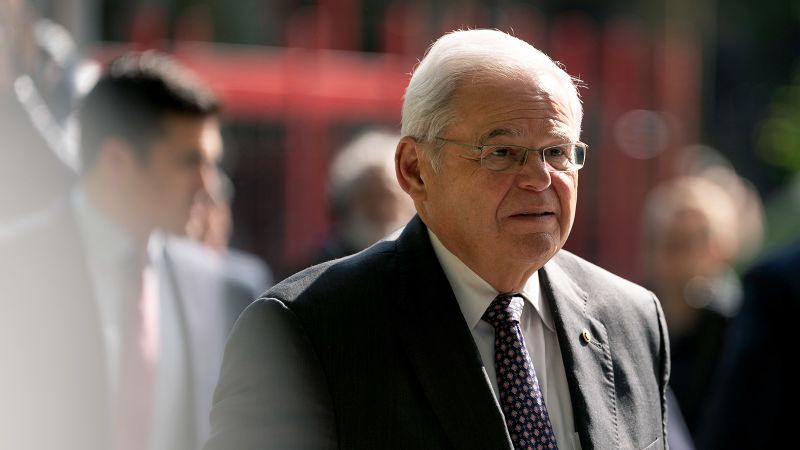
Democratic senators open to expelling Menendez if convicted, as party leaders struggle with indicted members
CNN
Democratic senators are signaling an openness to expelling Sen. Bob Menendez if he’s convicted in his corruption trial, as House and Senate leaders tread carefully around their indicted colleagues.
Democratic senators are signaling an openness to expelling Sen. Bob Menendez if he’s convicted in his corruption trial, as House and Senate leaders tread carefully around their indicted colleagues. As Menendez sits in a New York courtroom fighting charges he abused his office and enriched himself to aid the governments of Egypt and Qatar, Rep. Henry Cuellar of Texas has been indicted on federal bribery charges. Both Democrats have pleaded not guilty. While Menendez could face a verdict in the next few weeks, Cuellar’s case will take months to process — putting House Democratic leaders in a jam as they weigh how to handle a member who is running for reelection in a seat that could flip to the GOP. One reason they’re in a complicated position: Many were quick to call for the expulsion of then-Rep. George Santos before his case on fraud and money laundering charges went to trial. The New York Republican ultimately became the sixth House member ever to be expelled amid his litany of criminal charges and a damning House ethics report. Santos has also pleaded not guilty. Democratic leaders in the House have stopped short of calling on Cuellar to resign, putting those who led the push to oust Santos on the defensive. Rep. Dan Goldman, a Democrat from New York, defended his decision not to call for Cuellar’s resignation even though Goldman was one of the earliest and loudest voices to call on Santos to leave Congress.

Federal regulators repeatedly granted appeals to remove Camp Mystic’s buildings from their 100-year flood map, loosening oversight as the camp operated and expanded in a dangerous flood plain in the years before rushing waters swept away children and counselors, a review by The Associated Press found.

Two of the most senior figures in the US government — Secretary of State Marco Rubio and the White House chief of staff — have been impersonated in recent weeks using artificial intelligence — a tactic that harnesses a rapidly developing technology that cybersecurity experts say is becoming the “new normal” in terms of cheap and easy scams targeting senior US officials.





















 Run 3 Space | Play Space Running Game
Run 3 Space | Play Space Running Game Traffic Jam 3D | Online Racing Game
Traffic Jam 3D | Online Racing Game Duck Hunt | Play Old Classic Game
Duck Hunt | Play Old Classic Game









